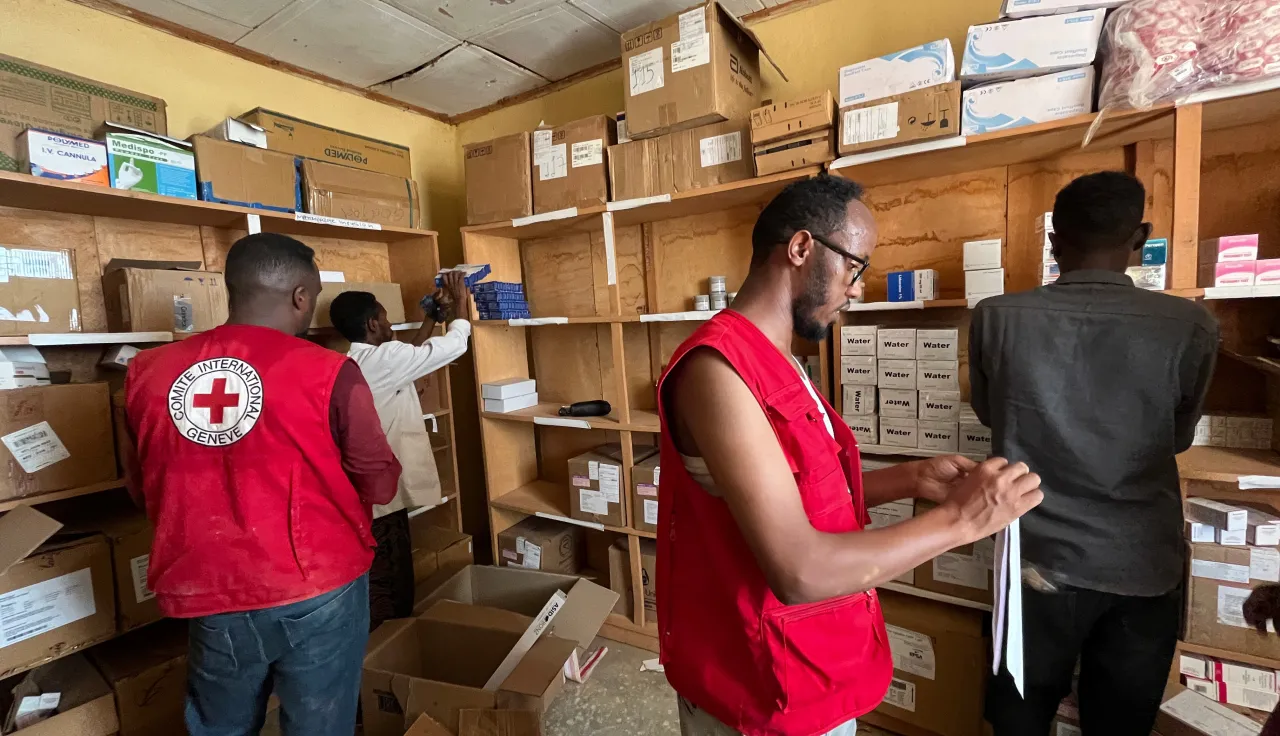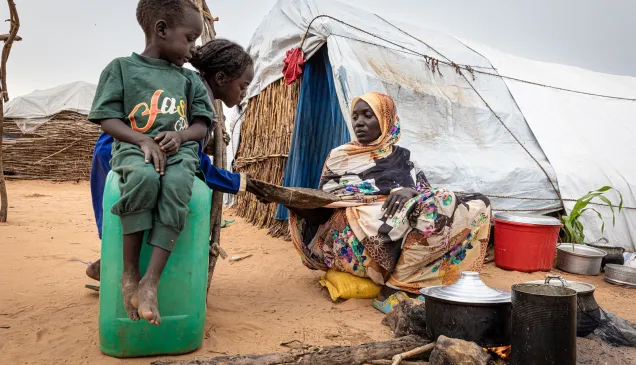Ethiopia: Thousands of people unable to access healthcare services after upsurge in violence

Clashes in various parts of Ethiopia affected by armed conflict and violence, have severely disrupted health services, particularly in rural and remote areas. The wounded, the sick, pregnant women, children and persons living with disabilities are the most vulnerable.
The conflict in Amhara region, which began in August 2023, has disrupted the provision of healthcare and attempts to resupply medicines and medical supplies have become difficult. Meanwhile, the security situation in Oromia region remains volatile, while Tigray region continues to experience the long-term effect of the past conflict, which is still affecting people's ability to access health facilities.
We are in regular contact with those involved in the fighting to remind them of the importance of respecting International Humanitarian Law (IHL) and the need to ensure that medical assistance is unhindered to those in need
To alleviate the burden on some of the most affected communities, the ICRC supports medical facilities in parts of the country that are affected by conflict and violence. In the first quarter of 2024, over 100 health facilities received tailored assistance, including 62 health facilities in Amhara region, 17 in Oromia, 20 in Tigray and six in Somalia Regional State.
The ICRC's support is aimed at ensuring access to health care for particularly vulnerable groups such as women, children, elderly, the chronically ill and the wounded. It includes donations of medicines, medical and surgical consumables, medical equipment and hygiene items to improve the delivery of essential health services to the wounded, the sick and survivors of sexual violence.
"The plight of populations in various areas affected by conflict and violence is worrying. Interruption of the referral system is preventing communities from accessing the hospital services when they need further care", said Silas Mukangu, who coordinates the ICRC's health activities in Ethiopia.
Overview of medical activities in ICRC-supported health facilities in Ethiopia during the first quarter of 2024:
- 173,861 outpatient consultations conducted.
- 1,380 children under five were admitted for treatment of malnutrition. Of these, 1,299 were successfully treated, while the others are being followed up.
- 9,553 family planning consultations were conducted and 8,008 people received contraceptives.
- 6,309 antenatal consultations
- 1,916 deliveries at health facilities.
- 2,078 survivors of sexual violence received medical care at supported Primary Health Centers and One-stop Centers.
For further information, please contact:
Robin Waudo, ICRC Ethiopia, tel: +251 905 097 498, email: rwaudo@icrc.org
Zewdu Ayalew, ICRC Ethiopia, tel. +251 944 101 700, email: zayalew@icrc.org



